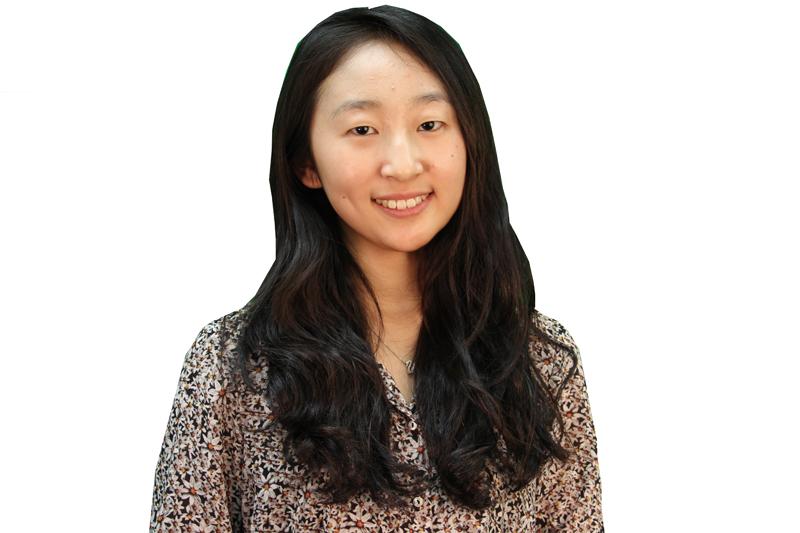Shin: What’s in a name? Torn between Korean, American cultures
January 9, 2015
One of my favorite scenes in “Romeo and Juliet,” undoubtedly, is the balcony scene when Juliet ponders why a seemingly simple designation of names should matter for Romeo and herself, using the famous rose analogy, “What’s in a name? That which we call a rose. By any other name would smell as sweet.” After all, what is a name but what we use to identify someone? It seems like nothing important until people kill and die over it.
This is because a name encapsulates all of the history, culture and origin of a person. Deeply embedded in culture and identity, whether we want it or not, names are some of the most basic identifiers. Identifying means a lot to us as people who want to make sense of things. Ever since we’re kids, we’re taught: boy vs. girl, blue vs. pink, day vs. night, north vs. south, etc. We live by categorizing.
One thing I noticed was that in the West, or at least from my experiences living in the United States and in Belgium, people can change their names either casually or legally. This contrasts with my background from the East, or at least in Korea. In the West, if a person’s given name is, say, William, it can be shortened to Will, Bill, Willie or even Liam, and people often do shorten it. Last names can be changed as well, albeit not as commonly.
I’ve read about many cases of immigrants anglicizing their names to better assimilate. Such flexibility does not exist in Korea: You can’t make nicknames or shorten names because Chinese characters are what they are, unique and if changed, completely different. Like most people’s names in Korea (although a new trend of “pure” Korean names is emerging), my given name, Heiwon, is comprised of two Chinese characters, giving the two syllables. “Hei” means grace, and “won” means beauty. You can’t shorten “Hei” into “H” or “ei” or “won” for that matter. The two-character names are like spaces that must be filled to be complete. Last names are basically steel-concrete when it comes to changeability.
Another thing I noticed was that my Korean name, when spoken by Koreans and non-Koreans, is different in terms of sound and how I identify with it. I’ve been in mostly English-speaking schools, where people pronounced my name using sounds and intonations that do not exist in Korean. Doing so un-Koreanized my name. I feel like the different pronunciations split my identity. Given the meaning of the name, I feel feminine with the Korean pronunciation. The anglicized pronunciation makes me feel bold because I don’t conform to common white names. It’s confusing. When Koreans call me by name, I feel estranged from that sound and the authentic version of my identity. This scares me.
Many Koreans use English names in Anglophone countries. With English speakers, they use their English names, and with Koreans, Korean names. The two names do not get mixed. They’re neatly compartmentalized. But I use my Korean name in both situations: It becomes changed, unstable, unreliable. Which stays more true to one’s Korean identity?
This question bothers me, especially as I think about job prospects and living in the United States. I’ve come across articles that show how people with stereotypically white names get a better chance at jobs, given the same resume. Because of my alien status, I can’t just simply think “good work will do.” It’s complex. I can’t really blame this potential white bias because it’s in our nature to feel distant from “the other.” I remember how reading Chinua Achebe’s “Things Fall Apart” was a struggle because the Nigerian names of the characters were not immediately registering in my mind. In an age of high competition, with highly qualified peers, little details like perception of one’s name may matter.
My pride in keeping my Korean name to represent who I really am may be simple stubbornness — idealistically refusing change — or simple naivety. It can be confusing since “who I really am” is as flexible as the pronunciation of my name. One of the logistical reasons why society asks for a name is because we assume it to be one of the most stable, constant factors in one’s identity. But just as gender is something that people can “re-identify” with, name has become less rigid and absolute.
What’s in a name? It is that which splits me to decide how Korean I want to be and how immersed I want to be in American culture. I feel like I’m selling out my own identity if I come up with an English name, but at the same time, isn’t it a natural process of coming to terms with a newly adopted culture? The questions never stop.
Heiwon Shin is a Medill sophomore. She can be contacted at [email protected]. If you would like to respond publicly to this column, send a Letter to the Editor to [email protected].


